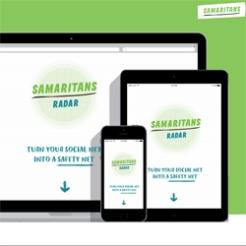Samaritans has confirmed that it has permanently closed its app that was designed to monitor people’s Twitter feeds for signs they might be struggling emotionally, following a backlash on Twitter accusing it of being an invasion of privacy.
The Radar Twitter App was designed to “offer people a second chance to see a tweet from someone they know who might be struggling to cope”, but was suspended just days after its launch for “further considerations” following criticism from mental health campaigners. A survey was also launched to get feedback on the app.
Samaritans, which sought legal advice following the suspension, had said it had not abandoned the project, however the announcement from the charity yesterday said that it recognised that it was “not the right online tool” to provide the best service for anyone who may need the charity’s support, whether on or offline, and so it would be permanently closed.
Catherine Johnstone, chief executive at Samaritans, said that the charity made the decision following the concerns raised at the launch regarding data protection and privacy issues. She said that any data associated with the app has been deleted and that the charity has responded to any individual requests for information that it has received.
Johnstone said: “We know that people often go online looking for support, as well as using it as an outlet to share their feelings. This presents both new opportunities and challenges in reaching out to those individuals, and Samaritans remains firmly committed to providing the very best service for anyone who may need our support, whether on or offline.
“We recognise that Samaritans Radar was not the right online tool to do this, but using what we have learnt and the feedback from the survey, we plan to develop and test new ways of supporting people online.”










